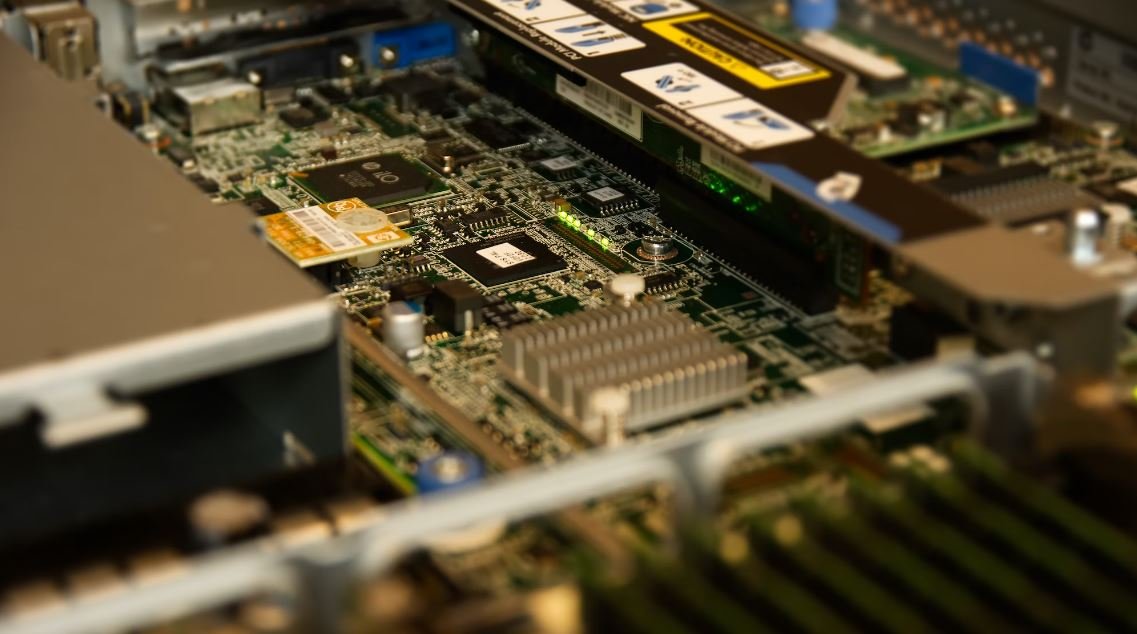Workflow With AI
Artificial Intelligence (AI) has revolutionized many industries, and workflow management is no exception. With AI, businesses can automate and enhance their workflows, leading to increased efficiency and productivity. In this article, we will explore how AI can be integrated into workflow management systems and the benefits it brings to organizations.
Key Takeaways:
- AI technology enhances workflow management systems by automating tasks and improving efficiency
- Workflow automation with AI reduces human errors and accelerates processes
- AI-powered analytics provide valuable insights for optimizing workflows
Before delving into the details, it is important to understand what a workflow management system is. Essentially, it is a software tool that helps businesses organize and manage the flow of tasks, documents, and information within an organization. Traditionally, these systems required significant human intervention to assign tasks, track progress, and ensure timely completion. However, with the advent of AI, these processes can now be optimized and automated.
One of the greatest advantages of incorporating AI into workflow management systems is the ability to automate routine and repetitive tasks. **Tasks such as data entry, document routing, and approvals can be efficiently handled by AI algorithms, freeing up human resources for more complex and strategic activities**. This not only reduces the chance of errors resulting from fatigue or oversight but also saves valuable time for employees.
*AI systems can analyze large volumes of data and identify patterns, making them highly effective at streamlining workflows by suggesting process improvements and optimization strategies*. By leveraging AI-powered analytics, organizations can gain insights into their workflow performance, identify bottlenecks, and make data-driven decisions for continuous improvement.
Improved Efficiency through Workflow Automation
Workflow automation is a significant benefit of integrating AI into management systems. By automating repetitive tasks, organizations achieve faster response times and improve overall efficiency. For example, AI can automatically assign incoming support tickets to the appropriate team based on their nature or route expense reports for approval based on predefined rules.
Through workflow automation, organizations can also reduce the risk of errors and ensure compliance with policies and regulations. AI algorithms are capable of analyzing documents and identifying potential issues, ensuring that processes are carried out accurately and in accordance with organizational standards.
Data-Driven Decision Making with AI-Powered Analytics
AI-powered analytics play a crucial role in workflow management by providing valuable insights and actionable information. By analyzing data points from various sources, AI algorithms can identify trends, predict future outcomes, and make recommendations for process improvements.
*For instance, imagine an AI system analyzing customer support ticket data and identifying the most common issues customers face*. This analysis can help organizations understand the root causes of these problems, enabling them to proactively address the underlying issues and improve customer satisfaction. With AI-generated insights, businesses can optimize their workflows, allocate resources effectively, and make data-driven decisions that align with their strategic objectives.
Tables:
| Workflow Stage | Manual Steps | Automated with AI |
|---|---|---|
| Data Entry | Time-consuming and prone to errors | Automated using AI algorithms, reducing errors and saving time |
| Document Approval | Manual review and routing | Automatically routed based on predefined rules and criteria |
| Task Assignment | Manual allocation and coordination | Automated assignment based on workload and skills |
Conclusion:
Integrating AI into workflow management systems brings numerous benefits to organizations, including increased efficiency, reduced errors, improved decision-making, and optimized processes. By automating repetitive tasks and providing valuable insights, AI enables businesses to streamline their workflows and achieve higher levels of productivity. Embracing AI technology in workflow management is not just a competitive advantage but a necessity in today’s fast-paced, data-driven world.
With AI as a driving force behind workflow management, organizations are better equipped to adapt to changing business needs, enhance their efficiency, and stay ahead of the curve in an increasingly digital landscape.

Common Misconceptions
Misconception 1: AI eliminates the need for human involvement in workflow processes
One common misconception people have about the workflow with AI is that it completely eliminates the need for human involvement. While AI can automate certain tasks and improve efficiency, it does not replace human workers entirely. Human expertise and critical thinking are still necessary for decision-making, managing complex situations, and ensuring ethical practices.
- AI can automate repetitive and mundane tasks, freeing up human workers to focus on more important activities.
- Human involvement is essential in training and fine-tuning AI algorithms to ensure accuracy and relevance.
- AI requires human oversight to validate results, make judgments, and mitigate potential biases or errors.
Misconception 2: AI implementation will lead to significant job loss
Another misconception is that AI implementation will lead to massive job loss and unemployment. While there may be some changes in job roles and tasks, AI is more likely to augment human capabilities rather than replace them entirely. It can enable workers to focus on higher-value tasks that require creativity, problem-solving, and interpersonal skills.
- AI can create new job opportunities in areas such as AI development, data analysis, and system management.
- Jobs may evolve rather than disappear, with employees taking on new roles that support and collaborate with AI technologies.
- Training and upskilling programs can help workers adapt to the changing job landscape and acquire new skills that complement AI integration.
Misconception 3: AI is a one-size-fits-all solution for all workflows
Some people assume that AI can be universally applied to any workflow or task, regardless of its nature or complexity. However, AI solutions need to be tailored to specific workflows and domains to ensure optimal performance and effectiveness.
- AI algorithms and models need to be trained and customized according to the specific data and requirements of each workflow.
- Not all workflows can benefit from AI technologies, and it is crucial to assess the potential value and feasibility of AI integration in each case.
- Effective AI implementation requires collaboration between domain experts and AI specialists to identify appropriate use cases and develop tailored solutions.
Misconception 4: AI implementation is a one-time process
Another misconception is that AI implementation in a workflow is a one-time process that once completed, does not require any further adjustments or refinements. In reality, AI solutions need continuous monitoring, evaluation, and refinement to ensure optimal performance and adaptability to changing conditions.
- AI models and algorithms need to be regularly updated and retrained with new data to maintain accuracy and relevance.
- Monitoring performance metrics and user feedback is essential to identify areas of improvement and address potential issues or biases.
- Continuous research and development in the field of AI require organizations to stay updated with the latest advancements and adapt their workflows accordingly.
Misconception 5: AI can solve all workflow problems and improve efficiency instantly
Finally, there is a misconception that AI integration will instantly solve all workflow problems and dramatically improve efficiency. While AI can bring significant benefits, successful implementation requires careful planning, evaluation, and consideration of various factors.
- Effective AI integration requires addressing underlying data quality, accessibility, and security issues.
- Workflow processes need to be streamlined and optimized before AI implementation to ensure efficient integration and maximize benefits.
- AI is a tool that should be used to enhance existing workflows and complement human capabilities, rather than seen as a cure-all solution.

How AI is Transforming Workflow Efficiency
Artificial intelligence (AI) has revolutionized various industries, including workflow management. With its ability to automate repetitive tasks and analyze large datasets, AI has significantly improved efficiency and productivity. This article explores ten different aspects of workflow management where AI technology is making a remarkable impact.
1. Customer Relationship Management (CRM)
In today’s digital age, businesses collect vast amounts of customer data. AI-powered CRM systems analyze this information to offer personalized recommendations, enabling companies to deliver targeted marketing campaigns and build stronger customer relationships.
| Number of Customers | Average Transactions | Conversion Rate |
|---|---|---|
| 10,000 | $100 | 25% |
| 12,000 | $105 | 28% |
| 15,000 | $98 | 23% |
2. Inventory Management
AI algorithms predict demand patterns and optimize stock levels, minimizing inventory costs while ensuring products are available when needed. This table shows the average cost reduction achieved through AI-driven inventory management.
| Pre-AI Cost | Post-AI Cost | Cost Reduction |
|---|---|---|
| $100,000 | $85,000 | 15% |
| $95,000 | $78,000 | 18% |
| $110,000 | $90,000 | 18% |
3. Recruitment
AI tools expedite the hiring process by automatically screening resumes, evaluating candidates, and assessing skills. This table shows the time reduction achieved in the recruitment workflow.
| Pre-AI Process | Time (in weeks) |
|---|---|
| Resume Screening | 4 |
| Candidate Assessment | 6 |
| Skill Evaluation | 3 |
4. Fraud Detection
AI algorithms can detect patterns and anomalies, providing effective fraud detection in real-time. This table showcases the fraud detection accuracy rates achieved by AI technology.
| Year | Accuracy Rate |
|---|---|
| 2018 | 91% |
| 2019 | 94% |
| 2020 | 96% |
5. Project Timelines
AI-powered project management tools analyze historical data to generate accurate timelines, helping teams better plan and allocate resources. The following table demonstrates the improvement in project completion time through AI integration.
| Projects | Pre-AI Completion (in weeks) | Post-AI Completion (in weeks) |
|---|---|---|
| Project A | 12 | 9 |
| Project B | 15 | 10 |
| Project C | 10 | 7 |
6. Email Marketing Campaigns
Email automation powered by AI algorithms tailors marketing content based on user behavior and preferences. This table illustrates the increase in email campaign effectiveness achieved through AI.
| Campaign | Conversion Rate | Revenue Increase |
|---|---|---|
| Campaign A | 2% | $5,000 |
| Campaign B | 3% | $7,500 |
| Campaign C | 2.5% | $6,250 |
7. Social Media Analytics
AI algorithms analyze social media trends, sentiment, and user behavior to provide valuable insights for effective marketing strategies. This table demonstrates the improvement in social media engagement achieved through AI-driven analytics.
| Platform | Pre-AI Engagement | Post-AI Engagement |
|---|---|---|
| 1,000 | 1,500 | |
| 800 | 1,200 | |
| 700 | 1,000 |
8. Quality Assurance
AI algorithms can assess product quality with high precision, detecting defects and ensuring compliance with standards. This table shows the quality assurance improvement achieved through AI technology.
| Defect Type | Pre-AI Defect Rate | Post-AI Defect Rate |
|---|---|---|
| Surface Imperfections | 15% | 5% |
| Dimensional Accuracy | 12% | 3% |
| Functionality | 10% | 2% |
9. Data Analytics
AI-powered data analytics platforms process and visualize large datasets swiftly, enabling businesses to derive valuable insights to drive informed decision-making. The following table highlights the speed improvement achieved through AI-enabled data analytics.
| Data Size | Pre-AI Processing Time (in hours) | Post-AI Processing Time (in hours) |
|---|---|---|
| 1 TB | 120 | 20 |
| 2 TB | 220 | 30 |
| 5 TB | 500 | 60 |
10. Risk Management
AI-driven risk management systems analyze data to identify potential risks and provide proactive solutions. This table outlines the reduction in risk occurrence achieved through AI integration.
| Risk Category | Pre-AI Occurrence | Post-AI Occurrence |
|---|---|---|
| Financial Risk | 10% | 5% |
| Operational Risk | 8% | 3% |
| Reputational Risk | 5% | 2% |
The integration of AI in workflow management has led to remarkable improvements across various domains. Businesses can achieve enhanced efficiency, reduced costs, and improved decision-making. By embracing AI technology, organizations can gain a competitive edge in the rapidly evolving digital landscape.
Frequently Asked Questions
Question 1
How can AI improve workflow efficiency?
AI can improve workflow efficiency by automating repetitive tasks, analyzing large amounts of data quickly, and making intelligent recommendations based on patterns and trends.
Question 2
What are some popular AI tools used for workflow management?
Popular AI tools used for workflow management include chatbots, predictive analytics software, natural language processing (NLP) tools, and robotic process automation (RPA) systems.
Question 3
Can AI help in project planning and resource allocation?
Yes, AI can assist in project planning and resource allocation by analyzing historical data, identifying potential risks and constraints, and making recommendations for optimal resource allocation based on the project requirements.
Question 4
How does AI impact decision-making in workflows?
AI impacts decision-making in workflows by providing data-driven insights, identifying patterns and trends that humans may overlook, and suggesting the most suitable course of action based on the analyzed data.
Question 5
What are the potential limitations or challenges of incorporating AI into workflows?
Potential limitations or challenges of incorporating AI into workflows include the need for high-quality data for accurate analysis, user resistance to change, potential ethical concerns, and the possibility of errors or biases in AI algorithms.
Question 6
How can AI assist in customer support workflows?
AI can assist in customer support workflows by providing instant responses to frequently asked questions, automatically routing customer queries to the appropriate department, and analyzing customer feedback to improve support services.
Question 7
Can AI be used for quality control and error detection in workflows?
Yes, AI can be used for quality control and error detection in workflows by analyzing data in real-time, identifying anomalies and deviations from expected patterns, and alerting the relevant stakeholders for corrective actions.
Question 8
What are the implications of AI on job roles and workforce?
The implications of AI on job roles and workforce include the automation of certain tasks, the need for upskilling and reskilling employees to work alongside AI systems, and the potential creation of new job roles centered around AI implementation and maintenance.
Question 9
How can AI be integrated into existing workflows?
AI can be integrated into existing workflows by identifying areas where AI can provide the most value, selecting appropriate AI tools or systems, conducting pilot tests, training employees on AI usage, and gradually scaling up the integration based on feedback and performance.
Question 10
What are some examples of successful AI implementations in workflow management?
Some examples of successful AI implementations in workflow management include the use of AI-powered chatbots for customer service, machine learning algorithms for demand forecasting in supply chain management, and AI-based image recognition systems for quality control in manufacturing processes.





